Premium Only Content

Other Worlds: The Turner Diaries Chapter 10, A Puke (TM) Audiobook
Chapter Ten.
November 16, 1991. The response of the System to last week's
mortar attack is taking shape. For one thing it's more difficult to
move around in public now. Police and troops have greatly stepped
up their spot checks, and they're stopping everyone, pedestrians as
well as vehicles. There are announcements on the radio about once
an hour warning people that they are subject to summary arrest if
they are unable to establish their identity when stopped.
The Organization has already been able to furnish some of us
with forged driver's licenses and other false identification, but it
will be some time before everyone in the Washington area has
been taken care of. Yesterday Carol had a close call. She had gone
to a supermarket to buy the week's groceries for our unit, and a
police patrol arrived while she was in the checkout line. They
stationed men at each exit and required everyone leaving the store
to show them satisfactory identification.
Just as Carol was ready to leave, there was a commotion at one
exit. The police had been questioning a man who apparently was
carrying no identification, and he became belligerent. When the
cops tried to put handcuffs on him he slugged one of them and
tried to run.
They tackled him before he had gone more than a few feet, but
the cops stationed at the other exits all ran over to help. Carol was
able to slip out a temporarily unguarded exit with her groceries.
All this identity-checking has diverted the police from their
regular duties, and the Thugs and other criminal elements are
really taking advantage of it. Some Army personnel are also
participating in the identity-checking and other police operations,
but their main duty is still guarding government buildings and
media facilities.
The most interesting development is that the Human Relations
Councils have also been given emergency police powers, and they
are "deputizing" large numbers of Liberals from the welfare rolls,the way they did for the Gun Raids.
In the District and in
Alexandria some of these deputized Liberals are already swaggering
around and stopping Whites on the streets.
There are rumors that they are demanding bribes from those they
stop, threatening them with arrest if they don't pay. And they have
been hauling some White women into their "field headquarters" for
"questioning." There they are stripped, gangraped, and beaten-all
in the name of the law!
The news media aren't breathing a word about these outrages, of
course, but the word is still getting around. People are angry and
frightened, but they don't know what to do. Without arms, there is
little they can do. They are completely at the mercy of the System.
It's hard to figure why the System is deliberately stirring things up
by deputizing Liberals again, after the enormous amount of
resentment that caused two years ago. We've talked it over among
ourselves in the unit, and our opinions are divided. Everyone but
me seems to think that the events of last Monday panicked the
System and caused them to overreact again.
Maybe, but I don't think so. They've had two months now to
become used to the idea of a guerrilla war between them and us.
And it's been nearly five weeks since we really bloodied their
noses for the first time by blowing up the FBI building.
They know that our underground strength nationwide couldn't be
more than 2,000-and they must also know that they are wearing us
down. I think they are unleashing the Blacks on the Whites strictly
as a preventive measure. By terrifying the White population they
will make it more difficult for us to recruit, thus speeding our
demise.
Bill argues, to the contrary, that the White reaction to the renewed
activities of the Human Relations Councils and their gangs of
"deputies" will make recruiting easier for us. To a certain extent
that was true in 1989, but White Americans have become so
acclimatized to the growing openness of the System's tyranny in
the last two years that I believe the latest move will serve more to
intimidate than to arouse them. We'll see.
Meanwhile, there's a mountain of work waiting for me.
Washington Field Command has requested that I furnish them with
30 new transmitters and 100 new receivers before the end of the
year. I don't know how I can do it, but I'd better get started.
November 27. Until today, I've been working my tail off, day and
night, trying to get the communications equipment built that WFC
wants. Three days ago-Tuesday-I rounded up the last of the
components needed and set up an assembly line here in the shop,
pressing Carol and Katherine into service. By having them perform
some of the simpler operations in the assembly process, I may be
able to meet my deadline after all.
Yesterday, however, I received a summons from WFC which
kept me away from the shop from early this morning until 10
o'clock tonight. One of the purposes of the summons was a
"loyalty check. "
I didn't know that before I reached the address I had been given,
however. It was the little gift shop in which Harry Powell's trial
took place.
A guard ushered me into a small office off the basement
storeroom. Two men were waiting for me there. One was the
Major Williams from Revolutionary Command whom I met
earlier. The other was a Dr. Clark-one of our legals-and, as I soon
learned, a clinical psychologist.
Williams explained to me that the Organization has developed a
testing process for new underground recruits. Its function is to
determine the recruit's true motivations and attitudes and to screen
out those sent to us as infiltrators by the secret police, as well as
those deemed unfit for other reasons.
In addition to new recruits, however, a number of veteran
members of the Organization are also being tested: namely, those
whose duties have given them access to information which would
be of special value to the secret police.
My detailed knowledge of our communications system alone would put me in that category,
and my work has also brought me into contact with an unusually large number of our members in other units.
We originally planned that no member in an underground unit
would know the identity being used by-or the unit location of -any
member outside his own unit. In practice, though, we have badly
compromised that plan. The way things have developed in the last
two months, there are now several of us in the Washington area
who could betray- either voluntarily or through torture-a large
number of other members.
We exercised great care in the recruiting and evaluation of new
members after the Gun Raids, of course, but nothing like what I
was subjected to this morning. There were injections of some drug-
at least two, but I was in a fog after the first one and can't be sure
how many more there were-and half-a-dozen electrodes were
attached to various parts of my body. A bright, pulsing light filled
my eyes, and I lost all contact with my surroundings, except
through the voices of my interrogators.
The next thing I remember is yawning and stretching as I woke
up on a cot in the basement nearly three hours later, although I was
told that the interrogation itself lasted less than half an hour. I felt
refreshed, with no apparent after effects of whatever drug I was
given.
The guard came over to me as I stood up. I could hear muffled
voices from the closed office; someone else was being
interrogated. And I saw another man sleeping on a cot a few feet
from mine. I suspect he had recently gone through the same
process I had.
I was led into another basement room, a tiny cubicle containing
only a chair and a small, metal table-actually, a typewriter stand.
On the table was a black, plastic binder, perhaps two inches thick,
of the sort in which typewritten reports are bound. The guard told
me that I was to read everything in the binder very carefully, and
that Major Williams would then talk to me again. He pulled the
door closed as he went out.
I had barely sat down when a girl brought me a plate of
sandwiches and a mug of hot coffee. I thanked the girl, and, as I was hungry, I began sipping the coffee and munching a sandwich
while I casually read the first page of the material in the binder.
When I finished the last page some four hours later I noticed that
the sandwiches-including an uneaten portion of the one I had
started-were still on the plate. The mug was nearly full of
thoroughly cold coffee. It was as if I had just returned to earth- to
the room-after a thousand-year voyage through space.
What I had read-it amounted to a book of about 400 typed pages-
had lifted me out of this world, out of my day-to-day existence as
an underground fighter for the Organization, and it had taken me to
the top of a high mountain from which I could see the whole
world, with all its nations and tribes and races, spread out before
me. And I could see the ages spread out before me too, from the
steaming, primordial swamps of a hundred million years ago to the
unlimited possibilities which the centuries and the millennia ahead
hold for us.
The book placed our present struggle-the Organization and its
goals and what is at stake-in a much larger context than I have ever
really considered before. That is, I had thought about many of the
things in the book before, but I had never put them all together into
a single, coherent pattern. I had never seen the whole picture so
clearly. (Note to the reader: It is obvious that Turner is referring to
the Book. We know from other evidence that it was written
approximately ten years before the Record of Martyrs, in which it
is mentioned-i.e., probably sometime in 9 BNE, or 1990 according
to the old chronology. Turner mentions "typed pages," but it is not
clear whether he means reproductions of typewritten pages or the
originals themselves. If the latter is the case, then we may have
here the only extant reference to the original copy of the Book!
Several reproductions of the original typescript in binders fitting
Turner's description have survived and are preserved in the
Archives, but archeologists still have found no trace of the
original.)
For the first time I understand the deepest meaning of what we
are doing.
I understand now why we cannot fail, no matter what we must do to win and no matter how many of us must perish in doing
it. Everything that has been and everything that is yet to be depend
on us. We are truly the instruments of God in the fulfillment of His
Grand Design. These may seem like strange words to be coming
from me, who has never been religious, but they are utterly sincere
words.
I was still sitting there, thinking about what I had read, when
Major Williams opened the door. He started to ask me to go with
him, when he noticed that I hadn't finished my sandwiches. He
brought another chair into the tiny room and invited me to finish
eating while we talked.
I learned several very interesting things during our brief
conversation. One is that, contrary to my earlier belief, the
Organization is getting a steady trickle of new recruits. None of us
had realized it, because WFC has been putting the new people into
brand-new units. That's why the new communications equipment is
needed.
Another thing I found out is that a significant fraction of the new
recruits have been secret-police spies. Fortunately, the
Organization's leadership foresaw this threat and devised a remedy
in time. They realized that, once we went underground, the only
way we could safely continue recruiting would be to screen new
people in a foolproof way.
Here's the way it works: When our legals have someone who says
he wants to join the Organization, he is turned over immediately to
Doctor Clark. Doctor Clark's method of interrogation leaves no room for
evasion or deceit. As Major Williams explained it, if the candidate
flunks the test he never wakes up from his little nap afterward.
That way, the System can never find out why their spies are
disappearing. So far, he said, we have caught more than 30 would-
be infiltrators, including several women.
I shuddered to think what would have happened if my own
interrogation had revealed me to be too unstable or lacking in
loyalty to be trusted with what I know.
And I felt a momentary flash of resentment that Doctor Clark, who is not even an underground member, should have held the decision of life or death for me in his hands.
The resentment quickly passed, however, when I considered that
there is really no stigma to being a legal. The only reason Doctor Clark
is not in the underground is that his name was not on the FBI's
arrest list in September. Our legals play just as vital a role in our
struggle as do those of us underground. They are vital to our
propaganda and recruiting effort-our only close contact with the
world outside the Organization-and they run even more of a risk of
being found out and arrested than we do.
Major Williams must have sensed my thoughts, because he put
his hand on my shoulder, smiled, and assured me that my test had
gone very well. So well, in fact, that I was to be initiated into a
select, inner structure within the Organization. Reading the book I
had just finished was the first step in that initiation.
The next step took place about an hour later. Six of us were
gathered in a loose semi-circle in the shop upstairs. It was after
business hours, and the blinds were tightly drawn. The only light
came from two large candles toward the back of the shop.
I was the next to the last to enter the room. At the top of the stairs
the same girl who had brought my sandwiches stopped me and
handed me a robe of some coarse, grey material with a hood
attached-something like a monk's robe. After I had put on the robe
she showed me where to stand and cautioned me to be silent.
Their features shadowed by their hoods, I could not make out the
faces of any of my companions in that strange, little gathering. As
the sixth participant reached the doorway at the top of the stairs,
however, I turned and was startled to glimpse a tall, burly man in
the uniform of a sergeant of the District of Columbia Metropolitan
Police slipping into a robe.
Finally, from another door, at the back, Major Williams entered.
He also wore one of the grey robes, but his hood was thrown back
so that the two candles, one on either side, illuminated his face.
He spoke to us in a quiet voice, explaining that each of us who
had been selected for membership in the Order had passed the test of the Word and the test of the Deed. That is, we have all proved
ourselves, not only through a correct attitude toward the Cause, but
also through our acts in the struggle for the realization of the
Cause.
As members of the Order we are to be the bearers of the Faith.
Only from our ranks will the future leaders of the Organization
come. He told us many other things too, reiterating some of the
ideas I had just read.
The Order, he explained, will remain secret, even within the
Organization, until the successful completion of the first phase of
our task: the destruction of the System. And he showed us the Sign
by which we might recognize one another.
And then we swore the Oath-a mighty Oath, a moving Oath that
shook me to my bones and raised the hair on the back of my neck.
As we filed out one by one, at intervals of about a minute, the girl
at the door took our robes, and Major Williams placed a gold chain
with a small pendant around each of our necks. He had already told
us about these. Inside each pendant is a tiny, glass capsule. We are
to wear them at all times, day and night.
Whenever danger is especially imminent and we might be
captured, we are to remove the capsules from the pendants and
carry them in our mouths. And if we are captured and can see no
hope of immediate escape, we are to break the capsules with our
teeth. Death will be painless and almost instantaneous.
Now our lives truly belong only to the Order. Today I was, in a
sense, born again. I know now that I will never again be able to
look at the world or the people around me or my own life in quite
the same way I did before.
When I undressed for bed last night, Katherine immediately
spotted my new pendant and asked about it, of course. She also
wanted to know what I had been doing all day.
Fortunately, Katherine is the sort of girl with whom one can be
completely truthful-a rare jewel, indeed. I explained to her the
function of the pendant and told her that it is necessary because of
a new task I am undertaking for the Organization-a task whose details I have obliged myself to tell no one, at least for the present.
She was obviously curious, but she didn't press me further.
-
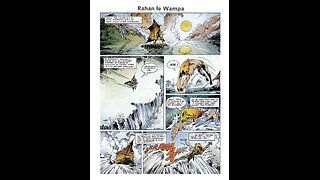 10:03
10:03
PukeOnABook
24 days agoRahan. Episode 171. By Roger Lecureux. Rahan the Vampire. A Puke(TM) Comic.
62 -
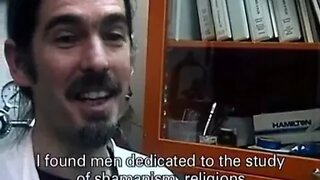 1:13:39
1:13:39
Strange TV
2 years ago $0.02 earnedOther Worlds Shamanism Documentary On Ayahuasca
108 -
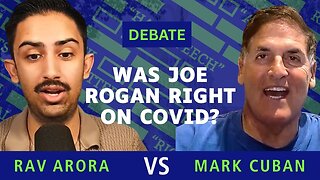 12:08
12:08
The Illusion of Consensus
13 days agoRav Arora vs Mark Cuban DEBATE On Whether Joe Rogan Was Right On Covid Vaccines For Young People
91210 -
 17:12
17:12
Paul Barron Network
14 hours ago$SBET🚨Ethereum Epic Short Squeeze Incoming!?🔥
5.97K -
 LIVE
LIVE
Lofi Girl
2 years agoSynthwave Radio 🌌 - beats to chill/game to
1,669 watching -
 2:05:44
2:05:44
Side Scrollers Podcast
19 hours agoCalifornia is LOST, YouTube LOOSENS Rules, YouTuber SHOT Over Beef + More | Side Scrollers Live
23.3K28 -
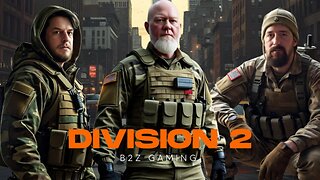 LIVE
LIVE
B2ZGaming
4 hours agoDivision 2 | B2Z Gaming
366 watching -
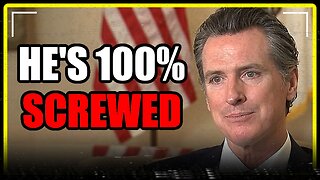 11:11
11:11
MattMorseTV
14 hours ago $1.73 earnedNewsom's FUNDING just got EXPOSED.
30.7K72 -
 8:07
8:07
Dr. Nick Zyrowski
6 days agoHigh Dose Vitamin D Increases Fat Loss & Muscle Growth - New Study
9.15K5 -
 LIVE
LIVE
sKoRpSteR
8 hours ago🔴LIVE RUMBLE GAMING - quick stuff
25 watching